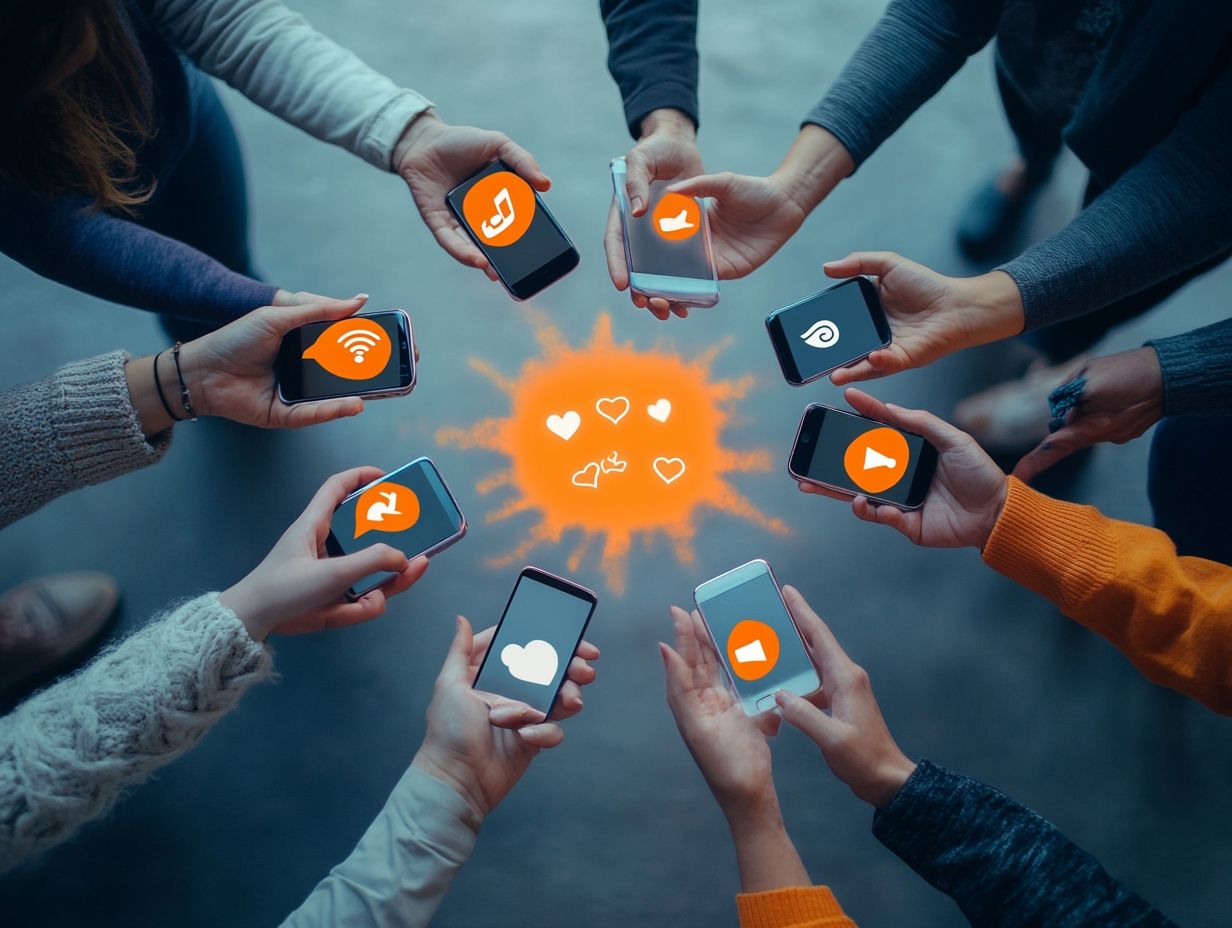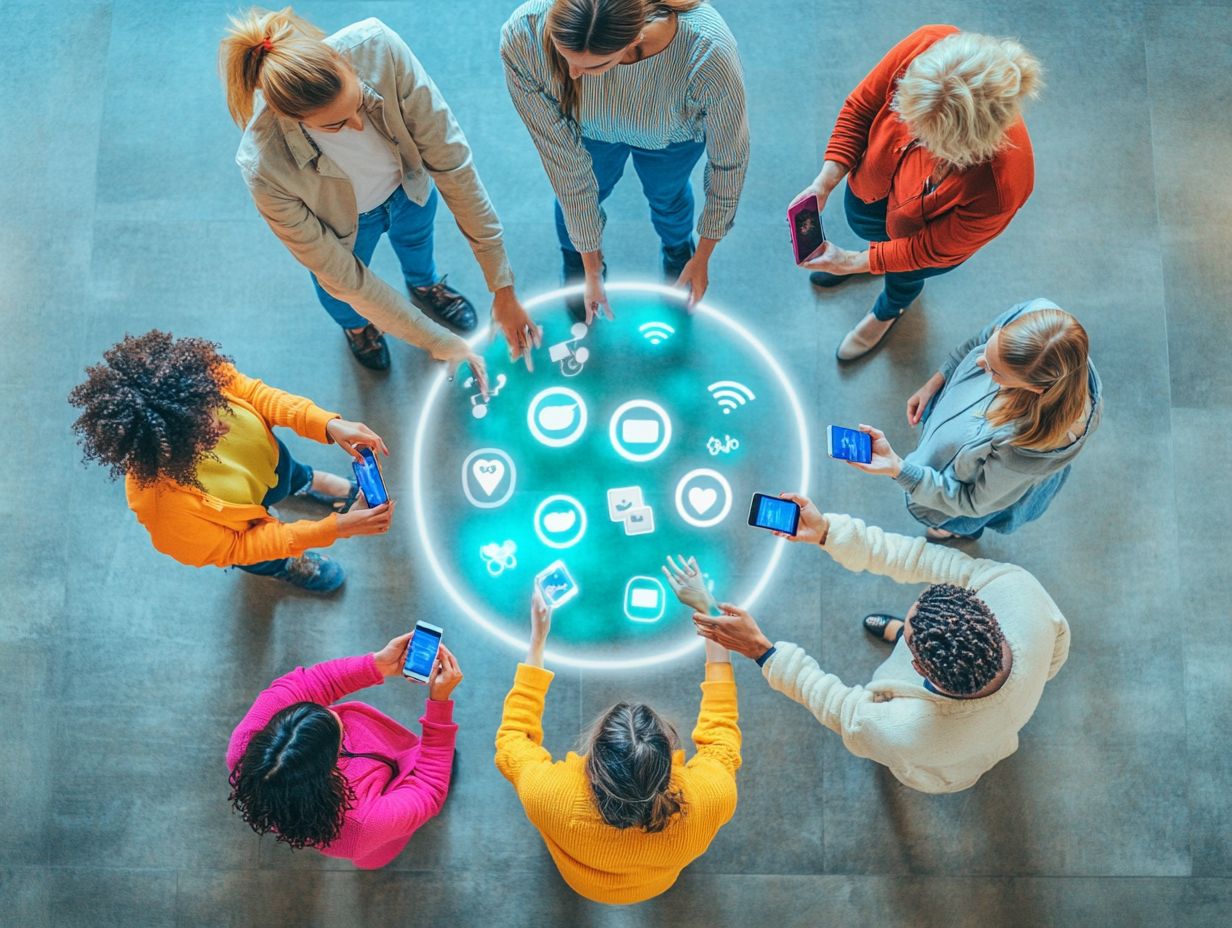Social media has emerged as a vital resource for cancer support, offering unparalleled opportunities for communication, information access, and community building. By enabling connections through platforms like Facebook, Instagram, and TikTok, social media provides a space for young adults facing cancer to seek advice, share experiences, and find emotional support.
Joining online support groups can significantly reduce social isolation, offering peer support and connections that boost resilience and promote a positive outlook on recovery. Additionally, these platforms serve as conduits for accessing reliable cancer-related resources and diagnosis-specific information, connecting users with experts and advocacy efforts.
For young adults navigating a cancer diagnosis, sharing personal stories on social media can raise awareness and foster empathy, while safety and privacy considerations ensure a secure online experience. Leveraging social media effectively can transform the support experience, addressing unmet support needs and providing critical emotional and informational reinforcement in the cancer journey.
Key Takeaways:
Why Social Media is a Valuable Resource

Social media is a valuable resource because it facilitates communication, provides access to information, and builds communities.
Social media platforms enable users to connect with others, share experiences, and find support, making it essential for personal growth and addressing psychosocial impacts.
Connecting with Others on Social Media
Connecting with others on social media involves using platforms like Facebook and Caring Bridge to share experiences, seek advice, and build communities.
Social media provides young adults facing cancer with support, understanding, and emotional health benefits.
Joining Support Groups and Communities
Joining support groups and communities on social media helps cancer patients and survivors by offering peer support and shared experiences.
These Facebook groups connect individuals with similar challenges, reducing social isolation and emotional burden.
Platforms like Facebook and Caring Bridge provide specialized online groups for sharing stories, gaining insights, and exchanging coping strategies.
Participation in these communities enhances resilience and promotes a positive outlook on recovery.
Benefits of Online Support
- Online support for young adults with cancer provides emotional health benefits through shared experiences and peer connections.
- Social media platforms enable engagement with cancer survivors, offering insight and encouragement.
- Online forums and virtual meet-ups create a supportive network for sharing fears and coping strategies.
- Participation reduces isolation and enhances coping mechanisms.
- Online support boosts resilience and emphasizes the importance of peer support and connection in cancer treatment.
Utilizing Social Media for Emotional Support

Utilizing social media for emotional support involves sharing personal stories and connecting with online communities to enhance understanding and empathy.
Social media provides a platform for individuals to find emotional reinforcement and solace through reciprocal disclosures and shared experiences.
Engaging with supportive communities on social media can significantly benefit mental health by fostering connection and support.
Sharing Experiences and Finding Empathy
Sharing experiences on social media allows young adults with cancer to express feelings and find empathy among peers.
By discussing challenges and triumphs, individuals create a supportive network that encourages healing and a sense of community belonging.
Social media provides a space where vulnerability meets understanding, fostering resilience and compassion among those facing cancer.
Using Social Media for Information and Resources
Social media provides access to cancer-related information and resources by connecting young adults with medical updates and diagnosis-specific tools.
Platforms like Facebook and Instagram help users find cancer-specific apps and patient advocates who offer insights about their conditions, like those from Stupid Cancer and organizations at Brown University and Rhode Island Hospital.
Using social media aids in understanding and managing cancer diagnoses by providing access to medical information and connecting with resources like the American Cancer Society.
Accessing Reliable Information and Resources
Accessing reliable information and resources through social media allows young adults with cancer to connect with credible sources and healthcare professionals.
Platforms like Twitter and Facebook provide updates on cancer research, treatment options, and support resources, including insights from institutions like UNC and the American Cancer Society.
Following organizations like the American Cancer Society offers access to expert insights, patient stories, and clinical trial information, which is crucial for patients with conditions such as Hodgkin lymphoma.
Engaging with online communities promotes awareness and provides support for young adults facing cancer.
Raising Awareness and Advocacy through Social Media

Social media raises awareness and advocacy for young adults with cancer by providing a platform to share personal stories and gather support.
These platforms enable individuals to educate others about cancer experiences and promote cancer-related causes.
Through social media, young adults can increase visibility for cancer advocacy efforts and engage with influential patient advocates.
Sharing Personal Stories and Spreading Awareness
Sharing personal cancer stories on social media raises awareness and educates about cancer in young adults, helping to address unmet support needs.
Personal narratives help demystify cancer and reduce stigma, fostering understanding and solidarity, while also addressing the emotional burden of extended absences from normal activities.
These stories also enable individuals to connect and discuss experiences, enhancing community support.
Safety and Privacy Considerations on Social Media
Safety and privacy considerations on social media involve protecting personal information and being aware of potential risks.
Social media users should use strong passwords, enable privacy settings, and avoid sharing sensitive information.
Understanding these practices helps users maintain control over their data and protect their emotional and physical well-being.
Protecting Personal Information and Boundaries
Protecting personal information on social media involves setting privacy boundaries and carefully managing shared content.
To protect information, young adults should avoid sharing specific medical details or personal identifiers.
Utilizing privacy settings and selectively accepting friend requests can create a safer online environment.
Establishing boundaries online helps maintain privacy and support personal well-being in digital cancer support communities.
Frequently Asked Questions

What are some ways to utilize social media for cancer support?
1. Joining online support groups: Social media platforms like Facebook and Twitter have groups specifically dedicated to cancer support, where you can connect with others going through a similar experience.
2. Sharing your story: You can use social media to share your cancer journey with others, raising awareness and creating a sense of community.
3. Raising funds: Many people use social media to raise funds for cancer treatment or research, by creating fundraisers and sharing them with their network.
What are the benefits of utilizing social media for cancer support?
1. Access to a wider support network: Social media allows you to connect with people from all over the world, providing a diverse and inclusive support system.
2. Convenience: With social media, you can access support and information from the comfort of your own home, without having to physically attend support groups or events.
3. Real-time updates and information: Social media can provide real-time updates on cancer research, treatments, and support options, keeping you informed and up-to-date.
How can I connect with healthcare professionals through social media for cancer support?
1. Follow reputable organizations and healthcare professionals: Many hospitals, cancer centers, and healthcare professionals have a social media presence, where they share valuable information and resources.
2. Use hashtags: You can search for relevant hashtags on social media platforms to find posts and discussions related to cancer support and connect with healthcare professionals and experts.
3. Join online forums: Some healthcare professionals use online forums and communities to interact with patients and provide support, making it easier to connect with them through social media.
Are there any precautions I should take when utilizing social media for cancer support?
1. Be mindful of your privacy settings: It’s important to be cautious about the information you share on social media and adjust your privacy settings accordingly to protect your personal information.
2. Verify information: Not all information shared on social media is accurate, so it’s important to fact-check and verify information before taking it as fact.
3. Avoid negative or toxic communities: While social media can be a great source of support, it’s also important to avoid toxic or negative communities that may not have your best interests at heart.
Can utilizing social media for cancer support have any negative effects?
1. Comparison and self-esteem issues: Seeing others’ journeys and live experiences shared on platforms like Facebook, Instagram, and TikTok may trigger feelings of comparison and affect your self-esteem. Facebook groups and Twitter can sometimes amplify these issues by constantly presenting curated views of success.
2. False hope: Some information shared on social media, including platforms such as Caring Bridge and Stupid Cancer forums, may promote false or unproven treatments, giving false hope to patients. Organizations like the American Cancer Society strive to combat misinformation.
3. Cyberbullying: Unfortunately, cyberbullying and negative comments can also occur on social media platforms, such as Facebook and Instagram, which can be harmful to those already going through a challenging time, like patients suffering from Hodgkin lymphoma. Institutions like Brown University, Rhode Island Hospital, and UNC are actively researching the impacts of social media on mental health.




